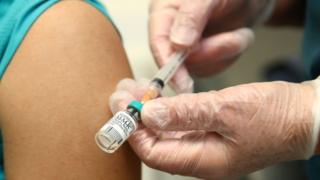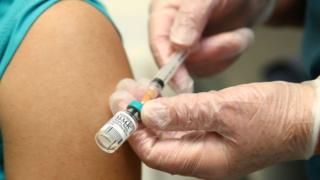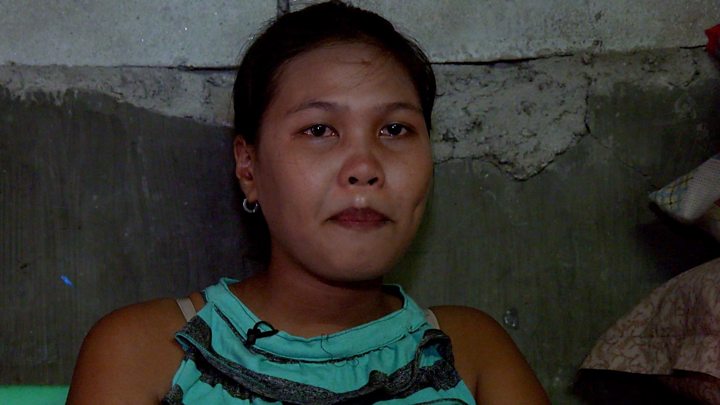Samoa measles: Unvaccinated families told to hang red flag on door
The Pacific nation declares a state of emergency as 60 people die of measles. …

 Image copyright Getty Images
Image copyright Getty Images Families that have not been vaccinated against measles in the Pacific nation of Samoa have been asked to hang a red flag outside their homes to help fight a deadly outbreak of the disease.
The flags will assist medical teams travelling door to door inoculating residents.
The government says more than 4,000 people have been infected with measles out of a population of 200,000.
Sixty people have died so far, many of whom were children under five.
Samoa declared a state of emergency in November to combat the outbreak and vaccinations are now compulsory.
All schools are closed and children under 17 are banned from public gatherings.
Samoan officials say the vaccination rate has now reached about 55%. Prime Minister Tuilaepa Sailele Malielegaoi has vowed to get the figure above 90%.
“Our children and people will never become immune to any future epidemic unless we have almost 100% vaccination coverage,” he said while touring a hospital ward on Wednesday.
“It’s the only antidote.”
Unicef has sent 110,500 vaccines to the country, and New Zealand has sent medicine, nurses and equipment – while battling an outbreak of the disease itself.
It usually takes between 10 days and two weeks for a vaccine to start working.
Some people are reportedly peddling false treatments. One businessman told Australian broadcaster ABC that his “Kangen Water” – in reality, tap water – could alleviate symptoms.
Tonga and Fiji have also declared states of emergency to tackle their measles outbreaks in the last month.
However, both countries have far higher vaccination rates – more than 90% in both countries – and have so far not reported any deaths.
The Tonga women’s rugby team were put in quarantine on Thursday after a measles outbreak.

Media playback is unsupported on your device
Measles is a highly infectious viral illness that can sometimes lead to serious health complications, including infections of the lungs and brain.
Infection rates are rising worldwide. The World Health Organization (WHO) announced in April that the number of cases reported globally quadrupled in the first three months of the year compared to the same period in 2018.
Nearly 5,000 people have died of measles in the Democratic Republic of Congo and close to a quarter of a million have been infected.
The WHO says the outbreak there is the world’s largest and fastest-moving epidemic.
What is measles?
Measles is a virus that initially causes a runny nose, sneezing and fever.
A few days later it leads to a blotchy rash that starts off on the face and spreads across the body.
Most people will recover, but measles can cause life-long disability. It can be deadly, especially if it causes pneumonia in the lungs or encephalitis (swelling in the brain).
It is estimated that a global total of 110,000 people die from measles each year.

Media playback is unsupported on your device

